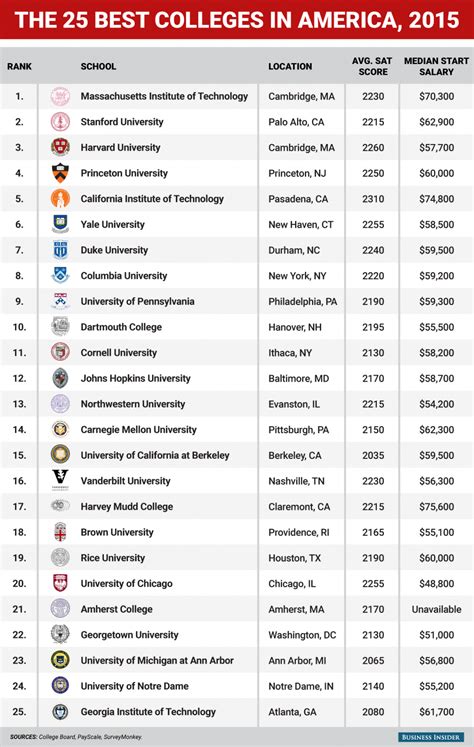Embark on an academic odyssey with our exhaustive list of universities. Whether you're a high school senior navigating the vast landscape of higher education or a lifelong learner seeking new horizons, our guide provides a comprehensive overview of the diverse university landscape. From the hallowed halls of Ivy League institutions to the innovative campuses of online universities, we delve into the nuances of public and private universities, top-tier and mid-tier universities, and research and teaching universities. Discover the distinctions between liberal arts colleges and universities, the advantages of historically Black colleges and universities, and explore the global reach of international universities. As you navigate this labyrinth of choices, this guide will empower you to make informed decisions that shape your academic future.
A Comprehensive Guide to Universities
The world of higher education is vast and diverse, with countless universities to choose from. Each institution has its own unique strengths and weaknesses, and it can be difficult to know where to start your search. This guide will provide you with all the information you need to make an informed decision about which university is right for you.

Public vs. Private Universities
Public Universities
Public universities are funded by the government, and they typically offer lower tuition rates than private universities. They are often larger and more research-intensive than private universities. Some of the most well-known public universities in the United States include the University of California, Berkeley, the University of Michigan, and the University of Wisconsin-Madison.
Private Universities
Private universities are funded by private donations and tuition fees. They typically offer smaller class sizes and more personalized attention than public universities. Some of the most well-known private universities in the United States include Harvard University, Yale University, and Stanford University.
Top-Tier Universities vs. Mid-Tier Universities
Top-Tier Universities
Top-tier universities are generally considered to be the most prestigious and selective universities in the world. They typically have high admission standards and offer a wide range of academic programs. Some of the most well-known top-tier universities in the world include Oxford University, Cambridge University, and the Massachusetts Institute of Technology.
Mid-Tier Universities
Mid-tier universities are less selective than top-tier universities, but they still offer a high-quality education. They typically have lower admission standards and offer a narrower range of academic programs than top-tier universities. Some of the most well-known mid-tier universities in the United States include the University of Illinois at Urbana-Champaign, the University of North Carolina at Chapel Hill, and the University of Virginia.
Ivy League Universities vs. Non-Ivy League Universities
Ivy League Universities
The Ivy League is a group of eight private universities in the Northeastern United States. They are widely considered to be the most prestigious universities in the world. The Ivy League universities include Brown University, Columbia University, Cornell University, Dartmouth College, Harvard University, the University of Pennsylvania, Princeton University, and Yale University.
Non-Ivy League Universities
Non-Ivy League universities are universities that are not members of the Ivy League. They offer a wide range of academic programs and have varying admission standards. Some of the most well-known non-Ivy League universities in the United States include the University of California, Berkeley, the University of Michigan, and the University of Wisconsin-Madison.
Research Universities vs. Teaching Universities
Research Universities
Research universities are focused on research and scholarship. They typically have large graduate programs and offer a wide range of research opportunities for students. Some of the most well-known research universities in the world include Oxford University, Cambridge University, and the Massachusetts Institute of Technology.
Teaching Universities
Teaching universities are focused on teaching and undergraduate education. They typically have smaller graduate programs and offer a more personalized learning experience for students. Some of the most well-known teaching universities in the United States include Williams College, Amherst College, and Swarthmore College.
Liberal Arts Colleges vs. Universities
Liberal Arts Colleges
Liberal arts colleges are small, private colleges that focus on the liberal arts. They typically offer a broad range of undergraduate programs in the humanities, social sciences, and natural sciences. Some of the most well-known liberal arts colleges in the United States include Williams College, Amherst College, and Swarthmore College.
Universities
Universities are larger institutions that offer a wide range of undergraduate and graduate programs. They typically have large research programs and offer a variety of student life activities. Some of the most well-known universities in the United States include Harvard University, Yale University, and Stanford University.
Online Universities vs. Traditional Universities
Online Universities
Online universities offer online courses and programs. They are a good option for students who want to study at their own pace or who live in remote areas. Some of the most well-known online universities in the United States include the University of Phoenix, Kaplan University, and Western Governors University.
Traditional Universities
Traditional universities offer face-to-face courses and programs. They are a good option for students who want to experience the traditional college experience and who want to benefit from the resources and support that a traditional university campus offers. Some of the most well-known traditional universities in the United States include Harvard University, Yale University, and Stanford University.
Community Colleges vs. Universities
Community Colleges
Community colleges are two-year colleges that offer associate degrees and technical certificates. They are a good option for students who want to get a jumpstart on their college education or who want to learn a trade. Some of the most well-known community colleges in the United States include the College of DuPage, the Tulsa Community College, and the Santa Monica College.
Universities
Universities are four-year colleges that offer bachelor's degrees, master's degrees, and doctoral degrees. They are a good option for students who want to pursue a traditional college education and who want to benefit from the resources and support that a university campus offers. Some of the most well-known universities in the United States include Harvard University, Yale University, and Stanford University.
Historically Black Colleges and Universities
Historically Black Colleges and Universities (HBCUs) are institutions of higher education that were founded for the purpose of educating African Americans. They play an important role in the African American community, and they offer a unique educational experience for students. Some of the most well-known HBCUs in the United States include Howard University, Spelman College, and Morehouse College.
Women's Colleges vs. Coeducational Universities
Women's Colleges
Women's colleges are institutions of higher education that are exclusively for women. They offer a variety of undergraduate programs and provide a supportive environment for women to learn and grow. Some of the most well-known women's colleges in the United States include Smith College, Wellesley College, and Mount Holyoke College.
Coeducational Universities
Coeducational universities are institutions of higher education that are open to both men and women. They offer a wide range of undergraduate and graduate programs and provide a diverse and inclusive learning environment. Some of the most well-known coeducational universities in the United States include Harvard University, Yale University, and Stanford University.
International Universities vs. Domestic Universities
International Universities
International universities are institutions of higher education that are located outside of the United States. They offer a variety of undergraduate and graduate programs and provide a unique opportunity for students to experience a different culture and learn about a different educational system. Some of the most well-known international universities in the world include Oxford University, Cambridge University, and the University of Toronto.
Domestic Universities
Domestic universities are institutions of higher education that are located in the United States. They offer a wide range of undergraduate and graduate programs and provide a traditional college experience for students. Some of the most well-known domestic universities in the United States include Harvard University, Yale University, and Stanford University.
Conclusion
Choosing the right university is a big decision. There are many factors to consider, such as your academic interests, career goals, and financial situation. This guide has provided you with a comprehensive overview of the different types of universities available. We encourage you to do your research and visit different universities to find the one that is the best fit for you.
Closing Word
Remember, there is no one "best" university. The best university for you is the one that meets your individual needs and goals. We hope this guide has helped you narrow down your search and find the university that is right for you.



